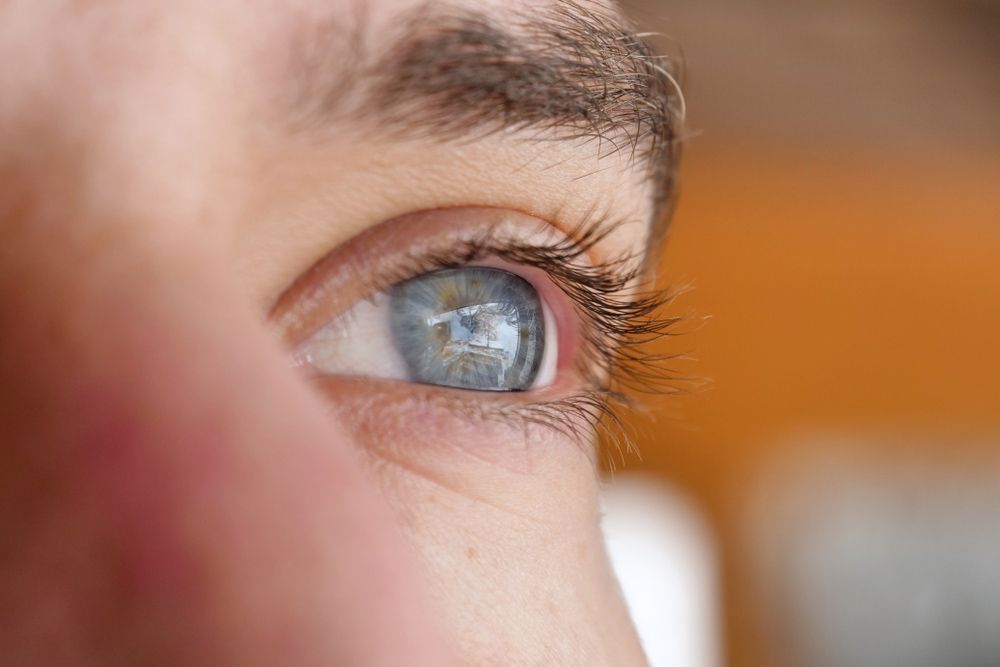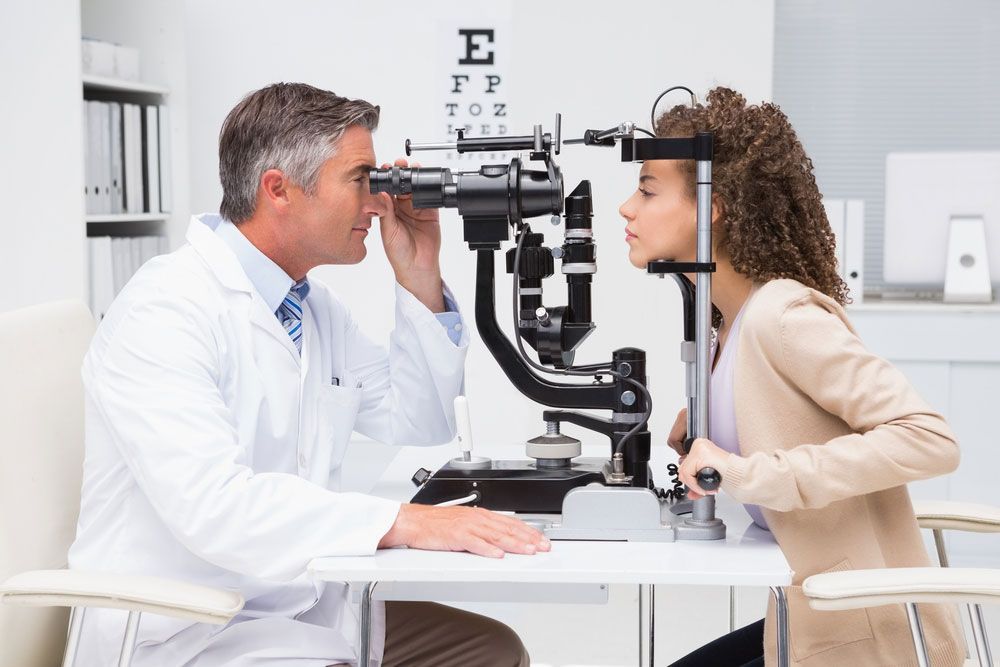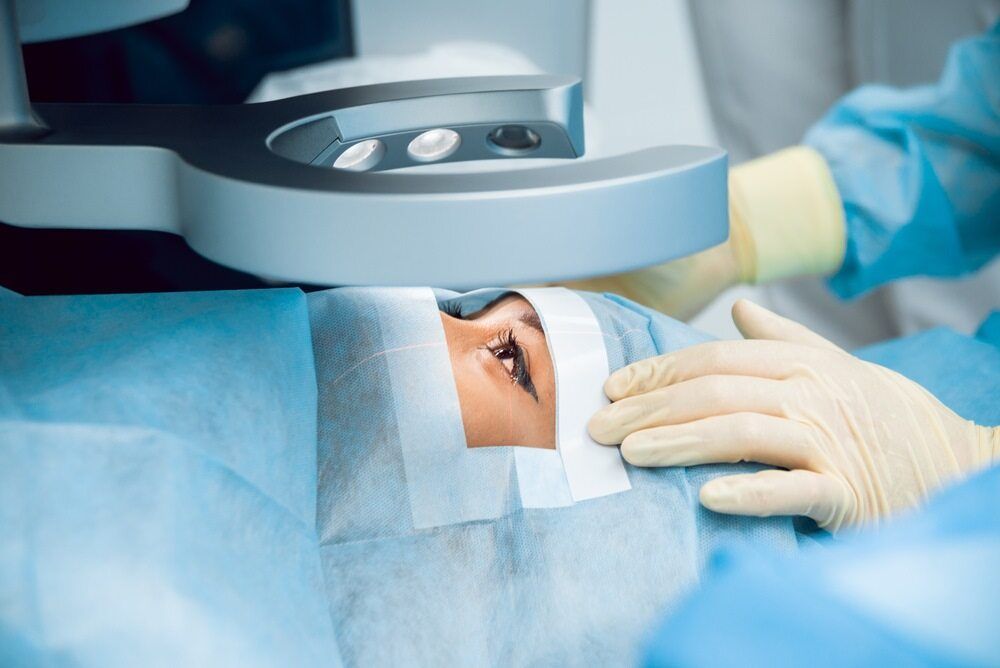What Is A Dilated Eye Exam And Why Is It Important?
A dilated eye exam is an essential test used by ophthalmologist to gain a better view of the inside of your eyes and assess your overall eye health. In this article, we’ll explain what’s involved in a dilated eye exam and explain why they are a crucial part of eye care.
What Is a Dilated Eye Exam?
A dilated eye exam involves the application of special eye drops that cause the pupils (the black centre of your eyes) to expand, or ‘dilate’. This process facilitates a more comprehensive view of the retina and optic nerve at the back of the eye. A dilated eye exam is much more than a mere vision test: it’s a thorough health check for your eyes.
During the eye dilation test, an ophthalmologist uses an instrument called an ophthalmoscope. This device shines a light into the eye, allowing them to observe the structures within, including the retina, optic nerve, blood vessels and more.
What Conditions Can Be Diagnosed with a Dilated Eye Exam?
The comprehensive nature of a dilated eye exam makes it an essential tool in detecting various eye conditions and diseases. It can help diagnose:
- Glaucoma: this disease affects the optic nerve and can lead to vision loss if not treated early. Lowering the intraocular pressure can help reduce vision loss.
- Age-related macular degeneration: this condition causes loss of central vision. Utilizing a macular degeneration injection could help with this condition.
- Diabetic retinopathy: this is damage to the blood vessels in the retina caused by diabetes. Solutions vary from laser treatment to eye injections.
- Retinal detachment:
this is a serious and sight-threatening condition, where the retina pulls away from the back of the eye. A vitrectomy is often necessary to replace the vitreous in the back of the eye.
How Long Does It Take for the Eyes to Fully Dilate and Recover?
Typically, the dilation process takes about 15-30 minutes. Once dilated, your pupils will typically take 2-4 hours to return to normal. Post-examination, the dilation effect can linger, causing light sensitivity and blurry vision for a few hours. It’s important to bring along a pair of sunglasses for comfort and arrange for a friend or family member to drive you home afterwards.
What Is a Dilated Eye Exam's Importance in Preventive Eye Care?
A dilated eye exam can help catch various conditions before they worsen. For instance, detecting diabetic retinopathy in its early stages can lead to timely interventions that prevent further complications. Similarly, early detection of glaucoma can significantly improve the chances of successful treatment and preservation of vision. Individuals struggling with AMD can also consider macular degeneration injections. It is recommended that individuals over the age of 40 have these exams at least every two years, or more frequently if they have risk factors such as a family history of eye disease or existing health conditions like diabetes or hypertension.
What Can I Expect During a Dilated Eye Exam?
During a dilated eye exam, in addition to the eye dilation, patients can expect a thorough evaluation. Patients may also be asked about their medical history and any specific symptoms they may have experienced, as this information can provide valuable context for the examination. It is essential to be open and honest about any concerns, as this can help tailor the exam to your specific needs. The more honest you are while working with your specialist, the better your results will be! Therefore, it's very important to be open with your provider about any symptoms or problems you may be facing.
What Post-Exam Considerations Should I Be Aware Of?
After the dilated eye exam, patients should be aware of a few considerations. Since the pupils will be sensitive to light and may cause blurred vision, it is advisable to avoid driving immediately after the exam. Patients might also experience discomfort from bright lights, making sunglasses a necessary accessory for the journey home. It is essential to discuss any questions or concerns with the ophthalmologist at the end of the examination. This includes understanding the results of the exam and any recommended follow-up appointments or treatments. Following the ophthalmologist’s advice can enhance eye health and ensure that any potential issues are closely monitored. Maintaining a routine schedule for eye exams, even when symptoms are not apparent, can be a proactive measure in safeguarding your vision.
Need a Dilated Eye Exam in Townsville?
In conclusion, a dilated eye exam is a vital component of comprehensive eye care, allowing ophthalmologists to detect and address potential issues before they escalate. Regular examinations not only help in diagnosing various eye conditions but also play a significant role in preserving vision and enhancing overall eye health. Individuals in Townsville are encouraged to prioritise these exams, especially if they are at risk for eye diseases. By choosing a qualified ophthalmologist and staying proactive about eye care, patients can ensure their vision remains clear and healthy for years to come. Schedule your dilated eye exam today for peace of mind and optimal eye health. If you're looking for a dilated eye exam, call our team today to get started.
Regular eye dilation tests can prevent minor eye health issues from becoming major ones. So, if you are in Townsville and your eyes need a comprehensive check-up, visit 130eye. Our ophthalmologist, Dr Glastonbury, has more than 30 years’ experience and is committed to providing comprehensive and professional eye care services. Schedule your dilated eye exam today and let's ensure your eyes remain as healthy as possible.



